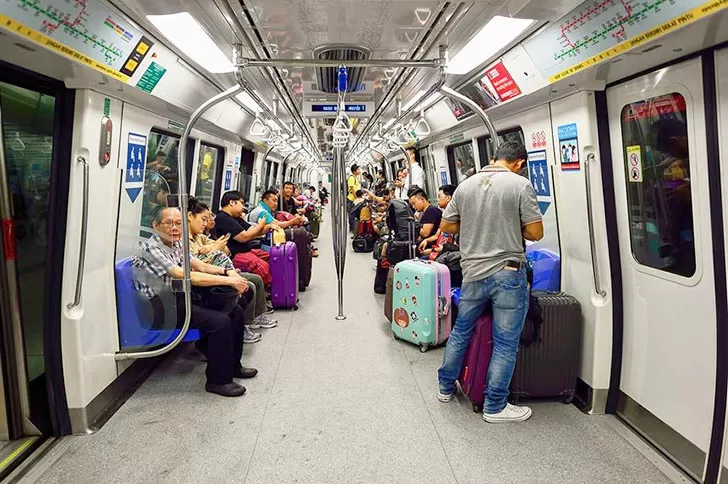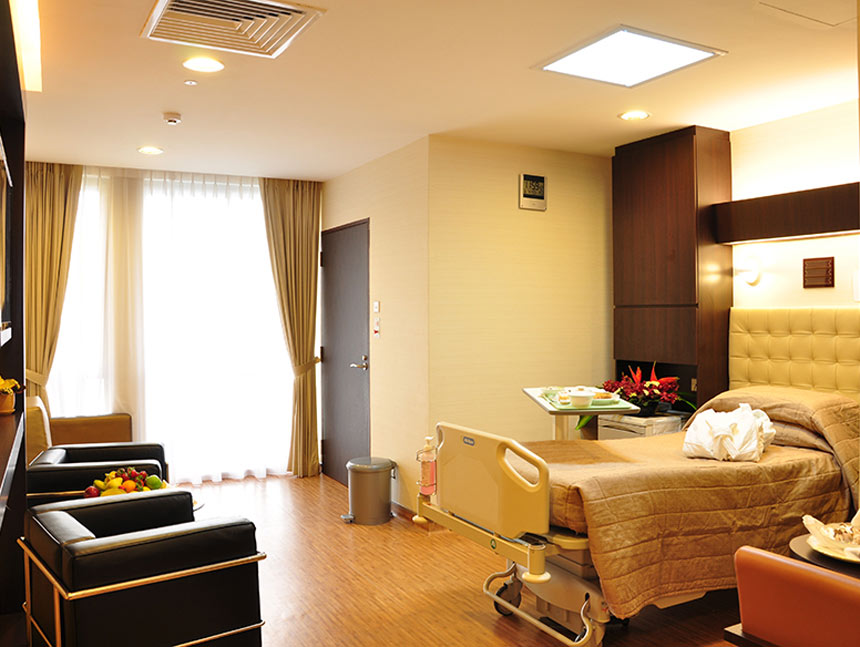There are many reasons why expats want to live in Singapore. In fact, when I first visited Singapore, I loved it so much that I immediately considered moving to the Lion City. Here are some of the things that I value most about Singapore that got me thinking about relocating.
Low crime rate
Singapore is renowned as a very safe city. Policemen may not be visible but there are surveillance cameras everywhere which help deter crime. People in Singapore can walk alone at night without fear of being mugged. Some shops don’t securely lock up at closing time. You can even see some stores that do not have doors! Only small ropes are used to indicate that they are closed and all the merchandise are easily within reach of passers-by. Singapore also has a zero-tolerance policy on drug-related offenses.
Many housing options
Expats who want to live in Singapore have plenty of options to choose from when it comes to living space. The most affordable option is the government-subsidized housing by the Housing & Development Board (HDB). There are also privately-owned condos and apartments that have amenities like swimming pool, playground, gym and function hall. More expensive landed detached houses can be found in the suburbs.
Super-efficient transportation
 Image: TEA
Image: TEA
Singapore is one of the few cities that can boast of a well-organized and efficient public transportation system. The road and public transport network is greatly extensive which makes daily transportation an easy task. Plus, MRT and bus fares are very cheap. Taking a cab is also an affordable option. Hailing app services like Grab is also available in Singapore.
High quality healthcare system
 Image: PEH
Image: PEH
Singapore’s healthcare system is among the highest ranked in the world. It is consistently the No. 1 in the Asia-Pacific Region, earning the recognition as Asia’s leading medical hub. There are many well-trained doctors as well as internationally-accredited hospitals in Singapore. Most of all, healthcare in Singapore is affordable especially with health insurance, either through private providers or the government-subsidized healthcare system.
Accessibility to Asia-Pacific countries
Getting in and out of Singapore is a breeze. The top-rated Changi Airport makes Singapore a convenient jump-off point to popular vacation spots in the Asia-Pacific. Several budget airlines operate in Singapore so traveling need not be expensive. Kuala Lumpur is only 350 kilometres away and getting there from Singapore can be done via bus, train or plane.
Foreign citizens live in Singapore for many reasons. Based on statistics, the island nation is among the world’s leading countries regarding the quality of living.
To learn more about why do expats wish to live in Singapore, please read on.
Expatriates Benefit from the Destination’s Cosmopolitan Character
Many nationalities reside in the Lion City. Most of them are Chinese, Indians, and Malays, but you will also find Europeans and Americans among other minorities.
With so many inhabitants from different parts of the world living together, racism is virtually non-existent. Moreover, you can practice your religion without limitations and enjoy diverse gastronomy.
The City State Has an Efficient Healthcare System
Private and public healthcare facilities are top-notch in “A City in the Garden.” Noted as the best in Asia and wider, local hospitals handle cases medical facilities of the neighboring countries aren’t able to.
But, before moving here, you should know the following:
- Health protection tends to be expensive.
- While expatriates with the permanent residential status get a discount, most others need to pay the full price for received treatments.
- Non-residents possessing only work pass may need to buy a health insurance policy on their own.
Ease of Communication
Due to the multinational and multicultural character of Singapore residents, communicating with them is easy for most expats. Even if you don’t speak Mandarin, Malay, or Tamil, you will manage well with English since most locals use this language.
Crime Is Very Low in the Lion City
A small chance of becoming a victim of a crime is another reason why foreign nationals wish to live in the Merlion city. Strict enforcement of the law combined with ubiquitous surveillance virtually leaves no room for any violation.
Therefore, it makes little difference, if at all, whether you are outside during the day or night. Some Singaporeans think that being outdoors at night is safer than during the day since pickpockets have less room to operate.
When you take a night-time stroll, for example, you may find closed stores that aren’t locked. Also, lone ladies are perfectly safe when outside after dark.
Public Transport Is Modern and Efficient
Reliable and efficient public transport can take you in a short time anywhere within the city-state. To cover long distances, you should resort to MRT/LRT trains. More so, their stations are near most principal points of interest of the Asian metropolis.
To reach a sidelined destination, combining trains and buses is a winning combination. As you can see, you don’t need a car to get around in the Little Red Dot.
To make use of the transport system, you need to buy the EZ-Link card.
Unemployment Is Low in the Republic of Singapore
Aside from local, many international companies thrive in Singapore. And, given that unemployment is negligible, merely a few percent, it is likely that a great future awaits you in the Merlion city.
There Must Be a Catch, Right?
Besides many benefits, there are a few downsides of living in “A City in the Garden.” So, consider the following cons before deciding to move to the city-state:
- Air temperatures are high, usually between 25°C/77°F and 32°C/90°F year-round.
- Everyday costs are on the expensive side. An expat coming from Tennessee, the USA, stated that a monthly rent on apartment cost her as an annual mortgage back home. Thus, secure a high income before arriving.
- If you move here with children, expect to pay the lion’s share of your salary for their education.
- Be aware that the work-life balance tends to be in favor of the former. And, the employers seldom compensate for overtime work.




 Top 10 Trusted Maid Agencies in Singapore
Top 10 Trusted Maid Agencies in Singapore  The 7 Most Romantic Restaurants in Singapore
The 7 Most Romantic Restaurants in Singapore  5 Best Sofa Cleaning Services in Singapore
5 Best Sofa Cleaning Services in Singapore  10 Best Aircon Services in Singapore
10 Best Aircon Services in Singapore  10 Best House Movers in Singapore
10 Best House Movers in Singapore  10 Best House Cleaning Services in Singapore
10 Best House Cleaning Services in Singapore  Illuminate Spring with Blooms across Lendlease malls
Illuminate Spring with Blooms across Lendlease malls  2XU Compression Run 2025 Singapore
2XU Compression Run 2025 Singapore  Solo Travel and Mental Health: Discovering Wellness Through Independence and Adventure
Solo Travel and Mental Health: Discovering Wellness Through Independence and Adventure  5 Ways to Improve Your Business’s Energy Efficiency
5 Ways to Improve Your Business’s Energy Efficiency  7 Types of Smart Road Solutions That Help Improve Traffic Efficiency and Safety
7 Types of Smart Road Solutions That Help Improve Traffic Efficiency and Safety  5 Best Cake Shops in Singapore for Special Occasions and Everyday
5 Best Cake Shops in Singapore for Special Occasions and Everyday  7 Best Izakaya Bars in Singapore for After-work Chill-outs
7 Best Izakaya Bars in Singapore for After-work Chill-outs  5 Best Japanese Hot Pot Restaurants in Singapore Right Now
5 Best Japanese Hot Pot Restaurants in Singapore Right Now  5 Best Singapore Live Music Bars for a Great Night Out
5 Best Singapore Live Music Bars for a Great Night Out  5 Best Sports Bars in Singapore: Super Fun & Exciting!
5 Best Sports Bars in Singapore: Super Fun & Exciting!  5 Fun and Healthy Seniors Activities for the Older Adults in Singapore
5 Fun and Healthy Seniors Activities for the Older Adults in Singapore